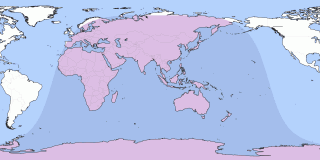May 5, 2023 at 8:27 pm
Max View in Knittelfeld, Styria
| Global Event: | Penumbral Lunar Eclipse |
|---|---|
| Local Type: | Penumbral Lunar Eclipse in Knittelfeld, Styria |
| Began: | Fri, May 5, 2023 at 8:17 pm |
| Maximum: | Fri, May 5, 2023 at 8:27 pm -0.324 Magnitude |
| Ended: | Fri, May 5, 2023 at 9:31 pm |
| Duration: | 1 hour, 14 minutes | All times shown on this page are local time. |
Eclipses and Transits Visible in Knittelfeld
| Eclipse Visibility From Knittelfeld | Visibility Worldwide | ||
|---|---|---|---|
| Sep 18, 2024 Partial Lunar Eclipse | Partial Lunar Eclipse |  | |
| Mar 14, 2025 Partial Lunar Eclipse | Total Lunar Eclipse |  | |
| Mar 29, 2025 Partial Solar Eclipse | Partial Solar Eclipse |  | |
| Sep 7, 2025 Total Lunar Eclipse | Total Lunar Eclipse |  | |
| Aug 12, 2026 Partial Solar Eclipse | Total Solar Eclipse |  | Note: Click on the date link for details in Knittelfeld, or the path map image for global details. |
Next total solar eclipse visible in Knittelfeld
Next annular eclipse visible in Knittelfeld
